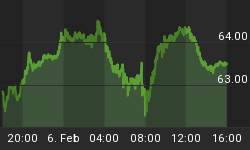On this 225th anniversary of liberté, égalite, and fraternité, Alexis de Tocqueville's The Old Regime and the French Revolution (L'Ancien régime et la revolution), published in 1856, is, if not as invigorating as La Marseillaise, a worthy reflection upon Bastille Day. Following are some excerpts from Chapter eight, which carries the subtitle: "How, given the facts set forth in the preceding chapters, the Revolution was a foregone conclusion":
My object in this final chapter is to bring together some of those aspects of the old régime which were depicted piecemeal in the foregoing pages and to show how the Revolution was their natural, indeed inevitable, outcome.
When we remember it was in France that the feudal system, while retaining the characteristics which made it so irksome to, and much resented by, the masses, had most completely discarded all that could benefit or protect them, we may feel less surprise at the fact that France was the place of origin of the revolt destined so violently to sweep away the last vestiges of that ancient European institution.
Similarly, if we observe how the nobility after having lost their political rights and ceased, to a greater extent than in any other land of feudal Europe, to act as leaders of the people had nevertheless not only retained but greatly increased their fiscal immunities and the advantages accruing to them individually; and if we also note how, while ceasing to be a ruling class, they had remained a privileged, closed group, less and less (as I have pointed out) an aristocracy and more and more a caste - if we bear these facts in mind, it is easy to see why the privileges enjoyed by this small section of the community seemed so unwarranted and so odious to the French people and why they developed that intense jealousy of the "upper class" which rankles still today.
Finally, when we remember that the nobility had deliberately cut itself off both from the middle class and from the peasantry (whose former affection it had alienated) and had thus become a foreign body in the State: ostensibly the high command of a great army, but actually a corps of officers without troops to follow them - when we keep this in mind, we can easily see why the French nobility, after having so far weathered every storm, was stricken down in a single night.
I have shown how the monarchical government, after abolishing provincial independence and replacing local authorities by its nominees in three quarters of the country, had brought under its direct management all public business, even the most trivial. I have also shown how, owing to the centralization of power, Paris, which had until now been merely the capital city, had come to dominate France - or, rather, to embody in itself the whole kingdom. These two circumstance, peculiar to France, suffice to explain why it was that an uprising of the people could overwhelm so abruptly and decisively a monarchy that for so many centuries had successfully withstood so many onslaughts and, on the eve of the downfall, seemed inexpugnable, even to the men who were about to destroy it....
Since no free institutions and, as a result, no experienced and political parties existed any longer in France, and since in the absence of any political groups of this sort the guidance of public opinion, when its first stirrings made themselves felt, came entirely into the hands of the philosophers, that is to say, the intellectuals, it was only to be expected that the directives of the Revolution should take the form of abstract principles, highly generalized theories, and that political realities would be largely overlooked. Thus, instead of attacking only such laws as seemed objectionable, the idea developed that all laws indiscriminately must be abolished and a wholly new system of government, sponsored by these writers, should replace the ancient French constitution.
Moreover, since the Church was so closely bound up with the ancient institutions now to be swept away, it was inevitable that the Revolution, in overthrowing the civil power, should assail the established revolution. As a result, the leaders of the movement, shaking off the controls that religion, law, and custom once had exercised, gave free reign to imagination and indulged in acts of outrageousness that took the whole world by surprise. Nevertheless, anyone who had closely studied the condition of the country at the time might well have guessed that there was no enormity, no form of violence from which these men would shrink....
But when the virile generation which had launched the Revolution had perished or (as usually befalls a generation engaging in such ventures) its first fine energy had dwindled; and when, as was to be expected after a spell of anarchy and "popular" dictatorship, the ideal of freedom had lost much of its appeal and the nation, at a loss where to turn, began to cast about for a master - under these circumstances the stage was set for a return to one-man government....

Frederick Sheehan writes a blog at www.aucontrarian.com
















